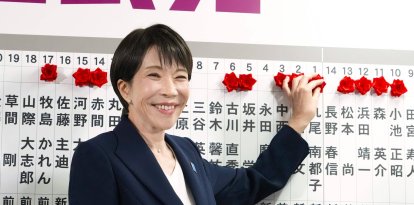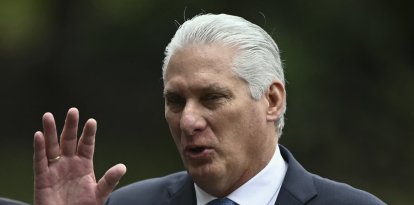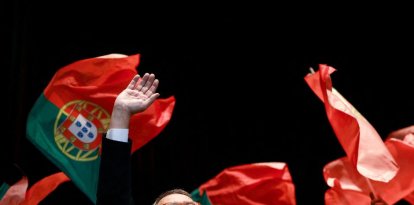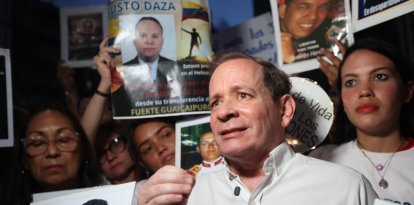China: Hong Kong Legislative Council unanimously approves new anti-activism security law
The new law aims to revise the previous one by introducing life sentences, a response to the mass protests of 2020 demanding the dissolution of Hong Kong's autonomy.

( AFP / DALE DE LA REY )
The Parliament of Hong Kong, China, approved on Tuesday its new security law that allows a much stronger crackdown on anti-government activism with life imprisonment for crimes of civil insurrection. "Article 23" was passed unanimously since there are no representatives of the opposition in the Legislative Power.
Hong Kong, which has some autonomy from mainland China, experienced an episode of mass riots that swept Hong Kong in 2020 calling for greater autonomy and less surveillance from the Chinese Communist Party.
John Lee, chief executive of Hong Kong, was pleased with the result of the vote, which he described as "historic" for the territory that the United Kingdom returned to China in 1997 after more than 150 years of colonial presence. John Lee stated that voting in favor of Article 23 is a "constitutional responsibility" of Hong Kong, as required by the "Basic Law" that has served as the island's mini-constitution since 1997.
Article 23 “will allow Hong Kong to effectively prevent, prohibit and punish espionage activities, plots and traps set up by foreign intelligence units, infiltration and sabotage carried out by hostile forces,” John Lee added. The Hong Kong leader was tasked with overseeing the 2020 protests as secretary of security until 2021.
The law was passed through the fast-track voting system, after a debate in the plenary session of Hong Kong's Legislative Council, which has 89 parliamentarians from 13 different political formations, as well as independents. Despite this, all 89 parliamentarians are aligned with the local government and the Chinese central government.
The new law foresees five categories of infractions that are particularly relevant to public order. They reinforce the legal arsenal to prevent violent popular revolts such as those of 2020. The new text mentions "treason, insurrection, espionage, sabotage of national security and foreign interference," according to AFP.
Western concern
The United States, the European Union and the United Kingdom expressed certain reservations regarding the law, which they consider to be a step backward in terms of human rights and democratic guarantees in Hong Kong. In statements reported by AFP, State Department spokesman Vedant Patel said that the administration is "alarmed by the scope" of these "imprecise" measures. "We believe that these kinds actions have the potential to accelerate the closing of Hong Kong's once open society," Patel added.
The West is also concerned about the increasing assimilation of Hong Kong into mainland China. Until now, the island has had a regime that allowed it to develop more freely, especially economically.
In 2020, Donald Trump and the Treasury Department sanctioned John Lee for undermining Hong Kong's autonomy. Shortly thereafter, the State Department added John Lee to a list of people it blamed for China's failure to achieve the objectives and terms stipulated by the British declaration of Hong Kong and the Basic Law.

























